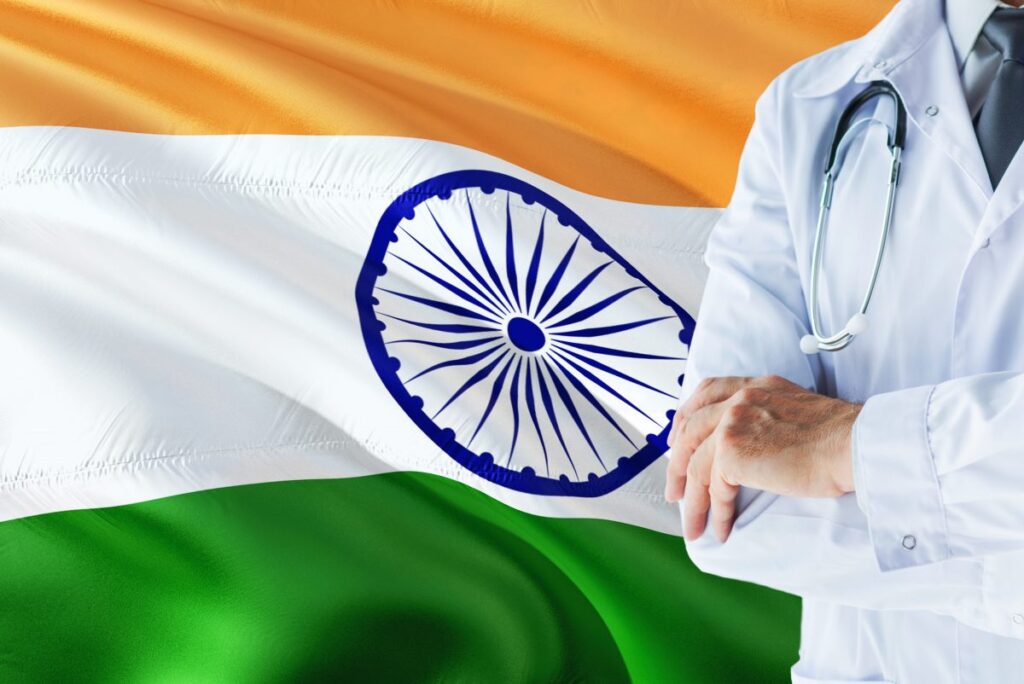Research has found that during the peak of the coronavirus (COVID-19) outbreak in China, around a third of medical staff suffered from insomnia. Physician burnout, therefore, is likely to be a major issue as the coronavirus pandemic continues.
 Such a finding is not unexpected, as medical staff were often working long hours and under extreme pressure both physically and mentally. The long hours place a strain on the body, although the stress runs far deeper. These doctors were working with the knowledge that they were themselves likely to be infected by the coronavirus, putting themselves, and their families at risk.
Such a finding is not unexpected, as medical staff were often working long hours and under extreme pressure both physically and mentally. The long hours place a strain on the body, although the stress runs far deeper. These doctors were working with the knowledge that they were themselves likely to be infected by the coronavirus, putting themselves, and their families at risk.
“Typically, stress-related insomnia is transient and persists for only a few days. But if the COVID-19 outbreak continues, insomnia may gradually become chronic insomnia in the clinical setting,” said study co-author Bin Zhang, Professor at Southern Medical University in China.
These findings, though taken in the context of the initial outbreak in China, now apply on a global scale. Doctors and medical staff across the world are struggling to contain the pandemic.
In the context of India, physician burnout is already a well-known phenomenon. Health Issues India previously noted on the topic that “almost 45 percent of surveyed doctors scored high on emotional exhaustion and 66 percent suffered from depersonalisation. The figures were generated by a survey conducted by Dr Pranav Modi and Amit Gharpure. The survey involved 500 Indian doctors responding to a questionnaire assessing their feelings on their work.
India is in a particularly vulnerable position in terms of physician burnout. Chronic levels of understaffing often mean that medical staff have to work additional hours even without the added burden of a pandemic occurring. In the light of the coronavirus outbreak, Indian doctors and medical staff are needed more than ever.
Issues arise when these physicians are not given adequate time to recuperate, however, and at times this can risk lives. Tired and stressed individuals are more prone to make mistakes, or miss out on particular cues when assessing an individual, as such doctors that have worked for long hours are far more likely to perform at a diminished capacity. That the pandemic has led to medical personnel facing harassment and even death, eviction, and rape threats will only exacerbate the toll COVID-19 is taking.
India’s doctor to patient ratio is improving, albeit slowly. According to the data, collated by the Central Bureau of Health Intelligence (CBHI), there is one allopathic doctor for every 10,926 people in India. This is a slight improvement from the National Health Profile for 2018, which posited India’s doctor-patient ratio at one physician for every 11,082 people.
The coronavirus pandemic is likely to continue into the foreseeable future, without addressing the shortage of medical staff it is likely that as India’s case count increases, health systems will be overwhelmed. Doctors are thus likely to face extended working hours over long periods of time simply to cope with the influx of patients — increasing the chances of burnout.
In many cases — such as that of underequipped rural medical centres — it is possible that even with the best efforts of medical experts, the lack of facilities will allow for deaths to occur at elevated rates.
“The Delhi government has now admitted to the [Delhi High Court] that, of 10,059 beds in the capital region’s government hospitals, just 348 have ventilator facilities. This equates to a prevalence of just 3.4 percent. This falls far short of national standards requiring that at least ten percent of beds in state-run medical facilities be equipped with ventilators.”
The stress of work, therefore, is also likely to add to the abuse healthcare workers receive as they are the public-facing side of the medical system. While much of this abuse will be regarding facilities and lack of equipment, it is the doctors and other medical staff that face the blame.
While many seek to place blame during the stresses of the coronavirus pandemic, the added burden to health workers does little to alleviate their stress. Reports of targeted abuse of medical staff are being revealed are likely to increase as the crisis continues.
“Under these dangerous conditions, medical staff become mentally and physically exhausted, and therefore experience an increased risk of insomnia due to high stress,” outlined the Chinese study. As the crisis shows no signs of abating, it is likely India’s medical workforce — and indeed medical workforces the world over — are set for a strenuous few months. It is vital to their wellbeing that those on the frontline of the pandemic are shown the appreciation they deserve and receive the support they need from the authorities.

